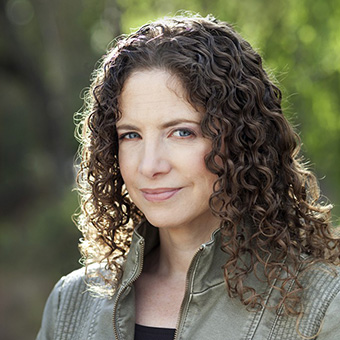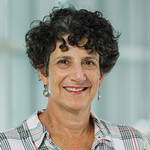Karima Bennoune to Speak at Brandeis
March 3, 2016
By Amy Powell
Editor's note: Karima Bennoune, author of "Your Fatwah Does Not Apply Here: Untold Stories from the Fight Against Muslim Fundamentalism," will deliver the annual Diane Markowicz Lecture on Gender and Human Rights at 7 p.m. Sunday, April 3, at Brandeis University.
In the wake of terrorist attacks from San Bernadino to Paris to Tel Aviv, people on all sides of the political spectrum react to violence perpetrated by Muslim fundamentalists. But, does anyone get it right?
 Karima Bennoune, author of "Your Fatwah Does Not Apply Here: Untold Stories from the Fight Against Muslim Fundamentalism," finds fault with the views coming from both the left and the right. She spent years travelling the world and hearing the stories of Muslims who have fought back against fundamentalist movements in their societies. She has suggestions for changing the dialogue.
Karima Bennoune, author of "Your Fatwah Does Not Apply Here: Untold Stories from the Fight Against Muslim Fundamentalism," finds fault with the views coming from both the left and the right. She spent years travelling the world and hearing the stories of Muslims who have fought back against fundamentalist movements in their societies. She has suggestions for changing the dialogue.
In her popular TED talk with more than 1.3 million views, and in a blog for the Huffington Post, Bennoune, a professor of international law at University of California Davis, criticizes the responses from both the left and the right to acts of violence from Muslim fundamentalists.
She noted that from the right, we hear the suggestion "that most Muslims are fundamentalist or something about Islam is inherently fundamentalist, and this is just offensive and wrong."
From the left, however, "one sometimes encounters a discourse that is too politically correct to acknowledge the problem of Muslim fundamentalism at all or, even worse, apologizes for it, and this is unacceptable as well."
In her blog for the Huffington Post she said, "While the Western right sometimes advocates bigotry and international crimes — like killing the families of terrorists as Donald Trump appallingly suggests — in response to Muslim fundamentalist violence, the Western left often refuses to recognize the reality of that violence and the actual danger posed by its underlying ideology."
She notes that most of the victims of Muslim fundamentalism are Muslims themselves, many struggling for democracy. "The Muslim fundamentalists are our extreme right wing," she notes in her book.
Bennoune, also the United Nations' Special Rapporteur in the field of cultural rights, suggests a new way of framing the discussion, one "which is grounded in the lived experiences and the hope of the people on the front lines."
"Her work details what she characterizes as 'an all out war on women' in some Muslim majority countries and the brave strategies these women and their allies use to fight against it. She shows how progressive advocates can use the law, arts and direct action to resist and transform their societies," said Lisa Fishbayn Joffe, associate director of the Hadassah-Brandeis Institute (HBI) and director of its Project on Gender, Culture, Religion and the Law ( GCRL).
"Bennoune's description of resistance against Muslim fundamentalisms around the world will deepen listeners’ understanding of this complex problem. While current political discourse cultivates fear, her work points the way to modes of constructive engagement to support those fighting Muslim fundamentalism," said Fishbayn Joffe.
To define Muslim fundamentalism, Bennoune relies on the work of Algerian sociologist Marieme Helie Lucas who said, "Fundamentalisms are political movements of the extreme right which in a context of globalization manipulate religion in order to achieve their political aims."
The majority of victims are other Muslims, whose human rights are threatened across Muslim-majority contexts in a range of ways. "Those include direct attacks on civilians by the armed groups, but also discrimination against religious minorities and sexual minorities and importantly, women," she said her in TED talk.
Both her TED talk and her book open with what Bennoune described as the moment she began her journey of study on this topic. It is a journey that led her to interview 300 people of Muslim heritage from nearly 30 countries to learn how they fought fundamentalism peacefully and how they "coped with the attendant risks."
She argues that "the people I met while writing this book deserve for us all to rethink our positions, to neither advocate violations of human rights and discrimination against Muslims in response to the actions of Muslim fundamentalists, as some on the right do, nor tolerate the fundamentalists in response, as some on the left do. Instead, these progressive opponents of Muslim fundamentalism on the ground need our principled support."
 Amy Powell is the HBI Director of Communications.
Amy Powell is the HBI Director of Communications.
Karima Bennoune is professor of international law at the University of California – Davis School of Law and is the United Nations’'Special Rapporteur in the field of cultural rights.
The Diane Markowicz Memorial Lecture on Gender and Human Rights is made possible by a generous gift from the Daniel Fischel and Sylvia Neil in memory of Sylvia’s late sister, Diane Markowicz, to honor her commitment to gender equality and social justice.